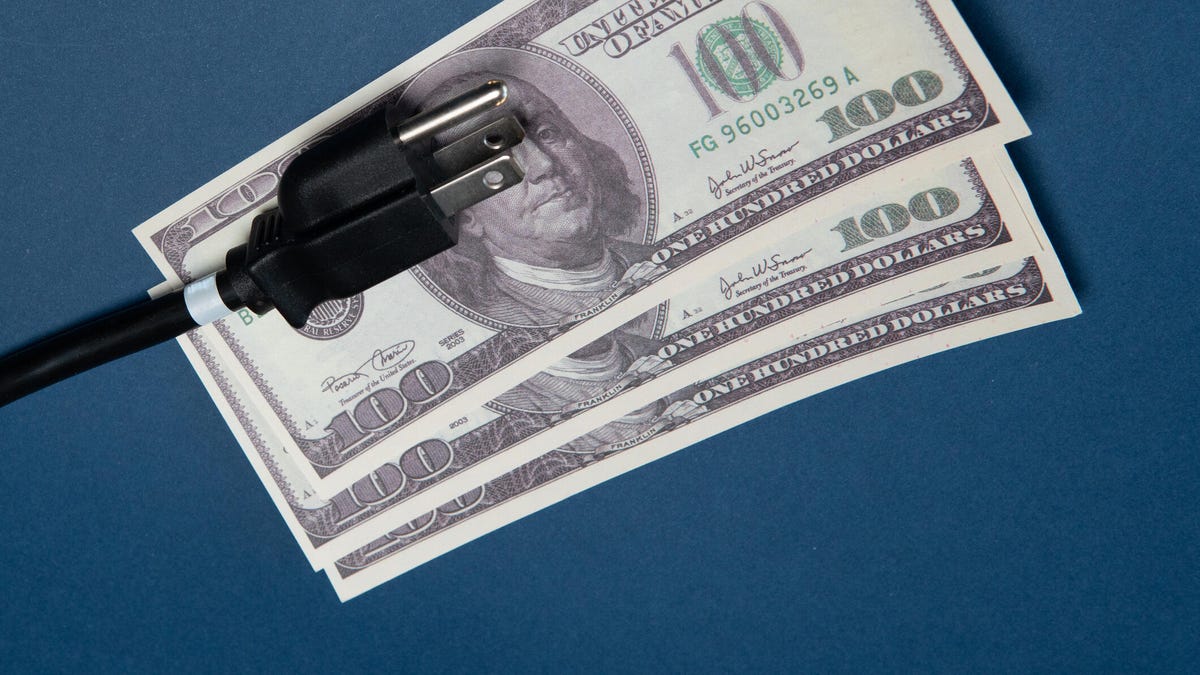 Why You Can Trust CNET
Why You Can Trust CNET Lower Your Electric, Gas and Water Bills This Fall: Hacks That Actually Work
CNET experts have compiled tips to help you save money on utilities this autumn season.

Don't let utility bills empty your wallet.
Between still-high grocery costs, gas prices and rent, you may face some tough questions this upcoming fall season. How do you save money on monthly expenses, for example, including gas, electric, water and AC bills?
Electricity and energy prices are predicted to remain high throughout the next several months which means American families will be bracing to spend hundreds of dollars on utility bills. Rather than straining your budget, consider making some behavioral changes that will reduce the energy you use and, thus, cut down your bills.
CNET staffers have followed fluctuating utility bills over the last several months and have written numerous articles with tips and tricks on how to slash energy bills. There are effective ways to pocket more money each month, and many of them are minor lifestyle changes you can make today. Below, we've compiled every article that can help you achieve lower electric, water and energy costs. And if you like this cheat sheet guide, you can also explore our solar cheat sheet and our home sustainability cheat sheet.
National average utility bills
In the US, the average family should expect to spend close to $300 every month on electricity, gas, water and sewer bills -- but that price can fluctuate greatly depending on region and usage.
Here's a breakdown of average monthly utility costs, according to Move.org, as well as a breakdown of the 10 states with the highest average utility bills in the US:
- Electricity: $117.46
- Natural gas: $61.69
- Water: $45.44
- Sewer: $66.20
10 states with the highest average utility bills in the US
| State | Electricity | Natural gas | Water |
|---|---|---|---|
| US average | $117.46 | $61.69 | $45.44 |
| Hawaii | $162.66 | $236.83 | $45.44 |
| Connecticut | $161.55 | $80.94 | $45.44 |
| Alabama | $143.95 | $78.83 | $45.44 |
| Georgia | $129.92 | $85.88 | $45.44 |
| Arizona | $136.70 | $78.22 | $45.44 |
| Massachusetts | $132.18 | $80.49 | $45.44 |
| Rhode Island | $130.75 | $81.55 | $45.44 |
| New Hampshire | $120.01 | $82.20 | $45.44 |
| South Carolina | $138.16 | $61.69 | $45.44 |
| Texas | $132.59 | $61.69 | $45.44 |
Save money on electric and gas bills
Probably the most important utility and the largest utility bill for Americans is electricity. You may have noticed a spike in electricity bills over the past few years, the reason being rising natural gas prices. Natural gas accounts for about 38% of the country's electricity production, so these bills are understandably connected.
Natural gas prices are expected to remain high, according to the US Energy Information Administration. Considering many household appliances use natural gas -- including stoves, ovens, dryers, fridge and gas-powered furnaces -- your bill can be considerable.
Here are some tried and true ways to lower your electric and gas bills:
- Set your thermostat to an ideal temperature during the summer.
- Turn off the lights every time you leave the room.
- Unplug appliances when they're not in use.
- Use appliances during specific times of day to cut down your electric bills.
- Move your thermostat.
- Consider upgrading to a smart thermostat for better temperature control.
- Adjust the temperature on your water heater.
- Invest in energy-saving smart devices for your home.
For renters who may not be able to make any large-scale adjustments, try these 10 apartment-friendly, energy-saving tips.
Save on water bills all year long
Between showers, sinks, toilets, dishwashers, washing machines and yard work, you probably use more water than you think. The average American household uses more than 300 gallons of water daily, according to the Environmental Protection Agency. Altogether, this equates to about $1,000 per year on water bills. Your monthly bill might be lower or higher than this, depending on your location, water usage habits, water-saving tech and other factors.
It's important to save on your water bill. Here's how:
- Decrease the time you spend in the shower.
- Skip the bath and opt for a shower instead.
- Use cold water when you do laundry.
So many of your appliances require water. Luckily, there are ways to cut down and save.
More tips to save money during the summer
On average, it costs between $75 and $175 per month to run a central air conditioning system and cool a home in the US. For many Americans in the South and Southwest, summer is the most brutal time of year for expenses.
Here's how to beat the heat without putting a dent in your wallet:
- Try six tips to lower air conditioning costs.
- Learn how to make your window AC unit last longer.
- Adjust your ceiling fan setting to lower your bills.
Learn to save money during the winter, too
Winter can be a costly time of year for many Americans in colder climates who rely on furnaces. Here are a few tips to help you pocket more cash:
- Insulate your water pipes.
- Weatherstrip your home.
- Upgrade to a heat pump to save on heating.
For all your heating information, explore our winter utility FAQ.
Keep checking CNET's Home Tips section for more advice on saving money and getting things done around the house.
For more cheat sheets, check out every Alexa and Google Home tip you need to know, your guide to getting solar at home and how to navigate your home internet options.

